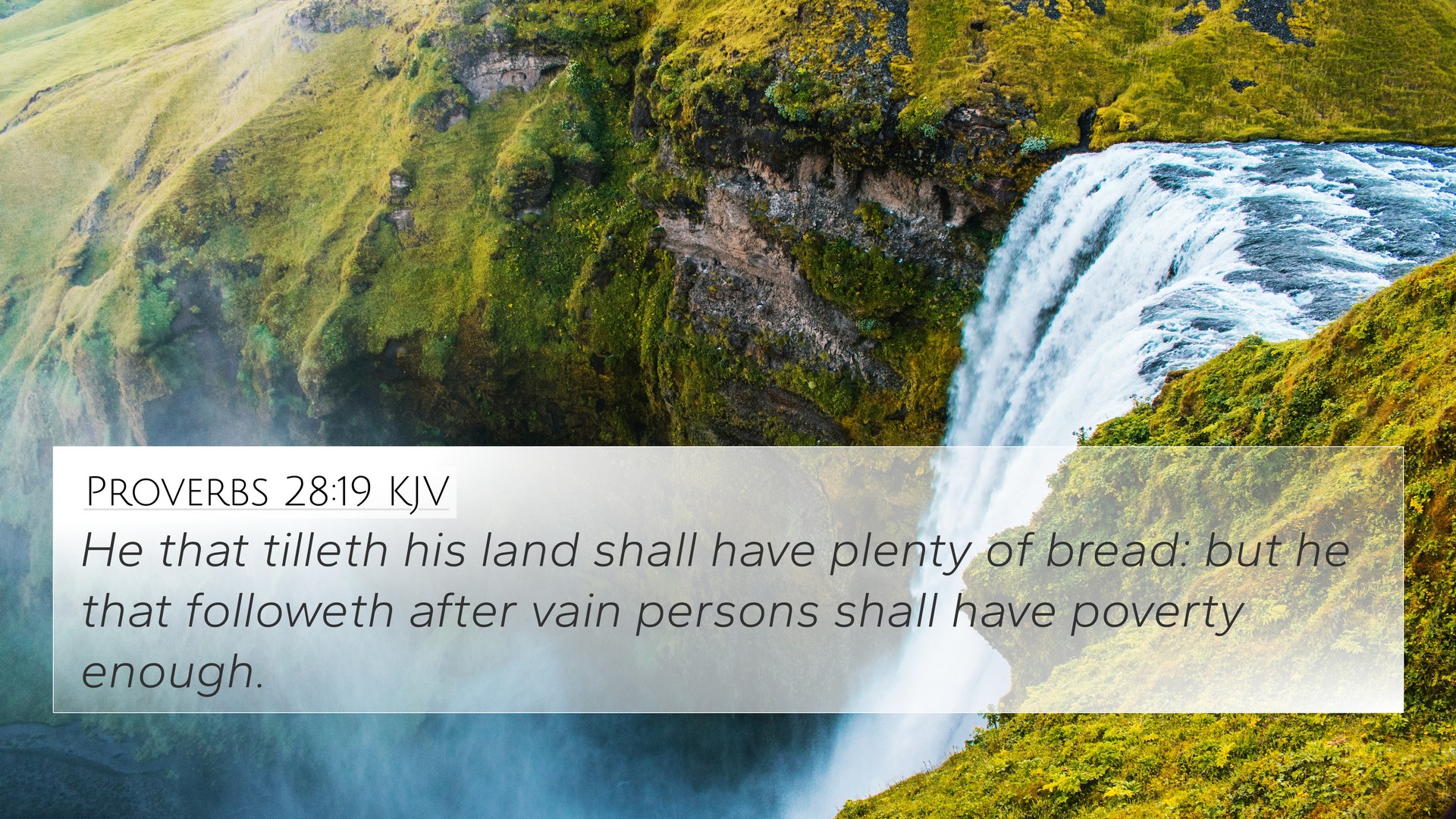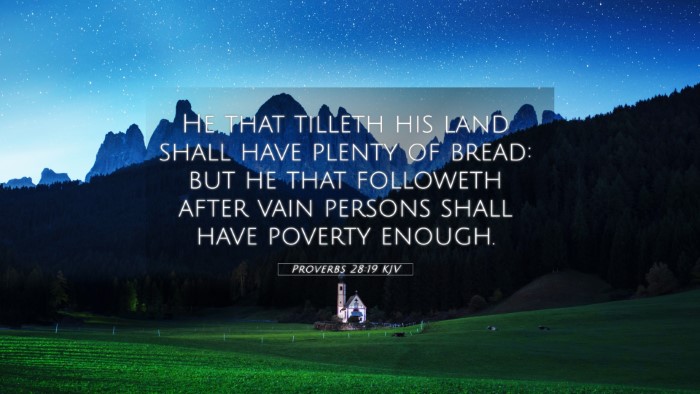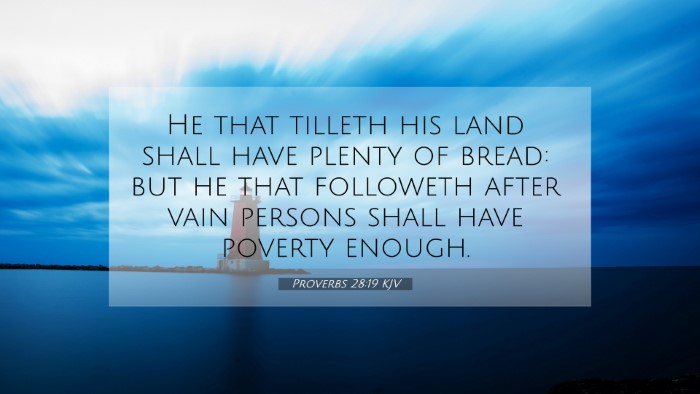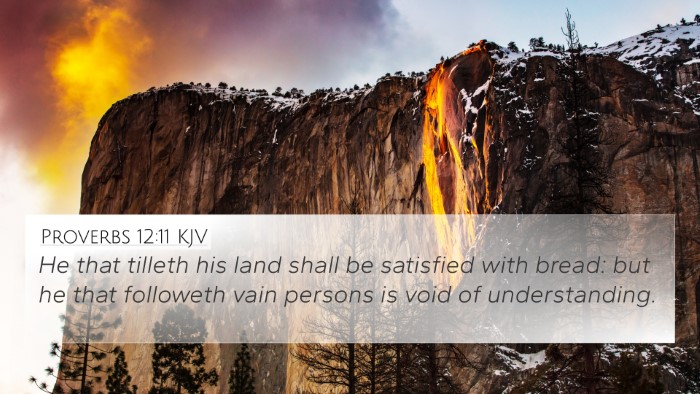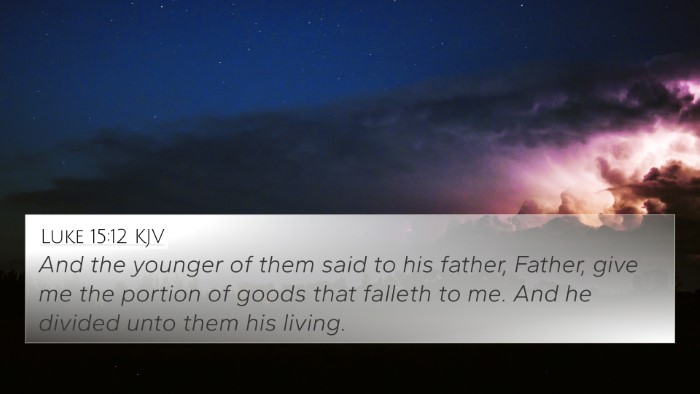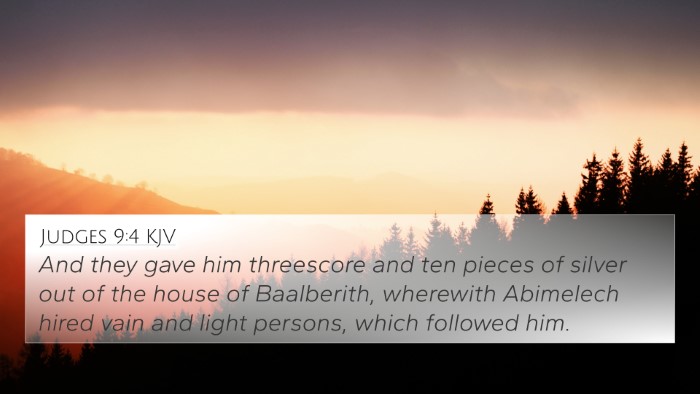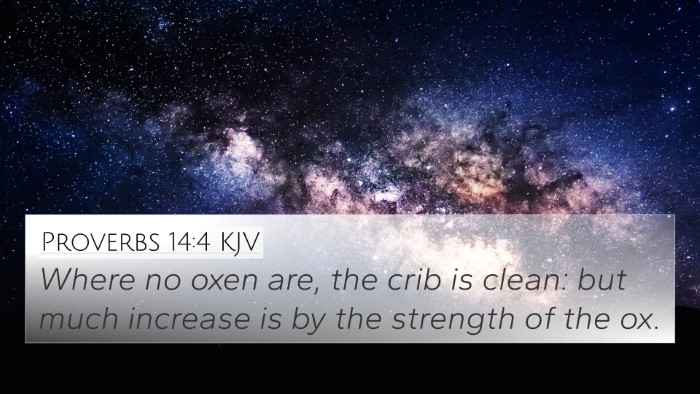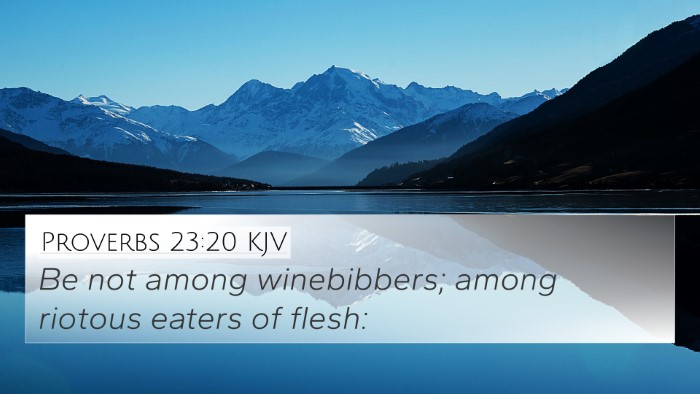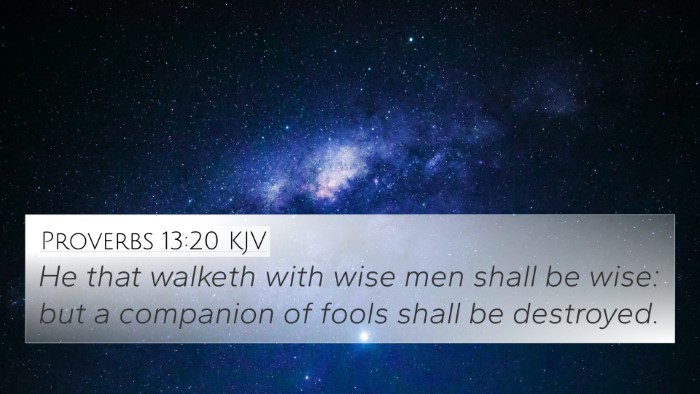Understanding Proverbs 28:19
Proverbs 28:19 states, "He who tills his land will have plenty of bread, but he who follows frivolity will have poverty enough!" This verse offers profound insights into the principles of diligence, responsibility, and the consequences of neglecting one's duties.
Exegesis and Commentary
According to Matthew Henry, this proverb emphasizes the importance of hard work and cultivating one’s resources. The "land" symbolizes one’s responsibilities and the potential for prosperity through committed effort. In contrast, "frivolity" indicates a lack of seriousness or commitment, which leads to scarcity and hardship.
Albert Barnes further elucidates that this verse highlights two paths: the diligent worker who is rewarded with abundance and the one who is idle or distracted, ending up in poverty. This distinction serves as a moral lesson on the value of applying oneself to one’s duties and the dangers of living without purpose or focus.
Adam Clarke notes the connection between this verse and the broader themes of wisdom in Proverbs. Adapting oneself to the demands of life and being industrious is portrayed as a virtue, while carelessness and indulgence in trivial pursuits are condemned.
Key Themes and Insights
- Diligence: The verse promotes the idea that hard work leads to prosperity. To "till" the land represents a commitment to one's responsibilities.
- Consequences of Idleness: Following frivolity correlates with negative outcomes—poverty and lack. This serves as a warning against laziness.
- Moral Responsibility: The verse calls for individuals to be accountable for their actions, suggesting that character and discipline are critical for success.
- Contrast of Outcomes: It sets up a clear contrast between the fruitful life of the diligent and the impoverished life of the reckless.
Bible Cross-References
Several other verses echo the themes found in Proverbs 28:19:
- Proverbs 10:4: "He who has a slack hand becomes poor, but the hand of the diligent makes rich."
- Proverbs 12:11: "He who tills his land will be satisfied with bread, but he who follows frivolity is devoid of understanding."
- Proverbs 13:4: "The soul of a lazy man desires, and has nothing; but the soul of the diligent shall be made rich."
- Proverbs 14:23: "In all labor there is profit, but idle chatter leads only to poverty."
- 2 Thessalonians 3:10: "For even when we were with you, we commanded you this: If anyone will not work, neither shall he eat."
- Ecclesiastes 10:18: "Because of laziness the building decays, and through idleness of hands the house leaks."
- Matthew 25:26-27: "But his lord answered and said to him, ‘You wicked and lazy servant...’” This parable emphasizes the consequences of not using one's talents and opportunities.
Comparative Analysis of Related Verses
Proverbs 28:19 can be cross-referenced with various scriptures to draw deeper insights about work ethics and life outcomes:
- Using Proverbs 10:4, we see a direct affirmation of wealth gained through hard work, providing a clear connection between effort and reward.
- Galatians 6:7 states, "Do not be deceived, God is not mocked; for whatever a man sows, that he will also reap." This principle aligns closely with the concept of reaping what is sown through diligent effort.
- Colossians 3:23-24 emphasizes the importance of working heartily and as for the Lord, which resonates with the diligence theme discussed in Proverbs.
- James 2:20 states, "But do you want to know, O foolish man, that faith without works is dead?" This underscores the necessity of action leading to results similar to Proverbs 28:19.
Application in Daily Life
The moral teachings in Proverbs 28:19 challenge individuals to examine their daily habits and the pursuits they engage in. It encourages the following applications:
- Self-Examination: Assess whether one is diligently working in their assigned duties or spending time on frivolous activities that produce no fruit.
- Work Ethic: Cultivate a strong work ethic that reflects both responsibility and a desire for growth.
- Set Clear Goals: Establish clear goals based on one’s talents and resources, thus aligning efforts towards fruitful outcomes.
- Value of Time: Recognize that time is a precious resource, and investing it wisely yields rewards.
Bible Study and Cross-Referencing Tools
For those interested in delving deeper into the Bible's interconnected scriptures, various tools can aid in cross-referencing. These include:
- Bible Concordance: Utilize a concordance for easy lookup of related themes and passages.
- Bible Cross-Reference Guide: Access comprehensive guides that list verses according to topics and themes.
- Bible Chain References: Explore chain references that link interconnected verses through thematic studies.
- Cross-Referencing Bible Study Methods: Implement methods that facilitate understanding the Bible's interconnectedness.
Conclusion
Proverbs 28:19 serves as a poignant reminder of the merits of diligence and the dangers of neglect. By cross-referencing this verse with related Bible texts, one can gain a richer understanding of its implications and apply its wisdom to personal life. In studying these connections, believers can enhance their spiritual walk and better appreciate the intricacies of God's Word.
